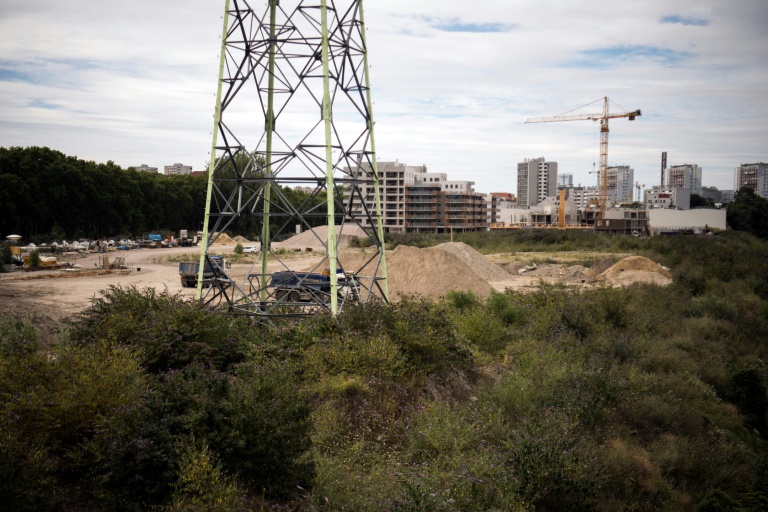These may indeed be the Paris Games — but a hefty chunk of the action will take place in Seine-Saint-Denis, a multi-ethnic suburb with an entrenched reputation for gang violence and drugs, and where more than a quarter live below the poverty line.
Many hope that this grim, grey vista north of the French capital will drastically change when the promised billions in Olympics investment start to flow.
“I hope that the economic impact, the infrastructure, the housing, will really benefit people living here,” said local resident Nadia Boussa.
Seven years of living on a giant building site, she believes, “will be worth the wait”.
Along with the Olympic village and media centre, six of the competition venues will be in Seine-Saint-Denis: athletics, swimming, water polo, shooting, badminton and volleyball.
The Stade de France national stadium, the showcase for football’s 1998 World Cup, is already located there and will host the opening and closing ceremonies as well as the athletics.
French officials emphasised Seine-St-Denis’s planned makeover during the bidding process, eager to please an International Olympic Committee determined to see the Games leave a positive legacy.
But the pressure to deliver lasting benefits for local residents is high after criticism that poor citizens of Athens and Rio got little in return for the lavish spending there.
In the “neuf trois” — “93”, as Seine-St-Denis is colloquially known, after its district code — more than half of high school children do not know how to swim, according to local authorities.
There are hopes that an Olympic pool, along with the construction and renovation of other swimming facilities, will help to change that.

The site of the future Olympic village in Saint-Denis, north of Paris
And then there is the planned conversion of the Olympic and media villages after the Games into environmentally friendly “eco neighbourhoods”, with 3,700 to 5,000 new homes.
– The Brooklyn of Paris? –
Infrastructure and clean-up operations have been promised for years in a suburb home to many gritty housing estates, but local officials insist the successful 2024 bid is what will actually make them happen.
Regional council president Stephane Troussel said the Games would “kickstart” Seine-St-Denis’s development.
He compared it to Brooklyn’s transformation from impoverished and crime-ridden to a hub of New York cool.
Troussel is hoping not only for a trickle-down of wealth to the local community, but a boost to the suburb’s long-suffering image, damaged by its association with 2005 riots which swept urban France.
This will not be the first time Seine-St-Denis has owed its redevelopment to sport.
Saint-Denis is already home to France’s national stadium
France’s successful bid for the 1998 World Cup spurred investment in the working-class town of Saint-Denis.
Previously best known for a Gothic basilica where France’s royalty are buried, Saint-Denis was chosen for the national stadium, which is surrounded today by a business district.
“Without the Olympics it would no doubt take longer to get things done,” said Patrick Braouezec, head of local housing body Plaine Commune.
He points to assurances that the Grand Paris Express, an extension to the metro network, will be finished on time as one example of how a major international sporting event can pressure authorities to act.
Local lawmaker Eric Coquerel was a touch more sceptical.
“It’s tough when we hear that we have to win the Olympics in order to get the roads resurfaced, get electricity cables buried and get approval for building eco neighbourhoods,” he said.
Coquerel predicted a “battle” to ensure that all of the promised amenities are realised, and that they “truly serve” local residents.
There are certainly lessons to learn from previous Games. When it comes to bidding for the Olympics, promises made are not always promises kept.
In Athens, little of the infrastructure has been reused; in Rio, the Olympic Park is closed, the swimming pool has been drained and the Village — meant to be transformed into high-end housing — is still awaiting residents.
And in east London’s Stratford district, where a pre-Olympic spending boom brought a luxury shopping centre, many complain that regeneration has meant soaring house prices — pushing some of the old residents out.
Download our app